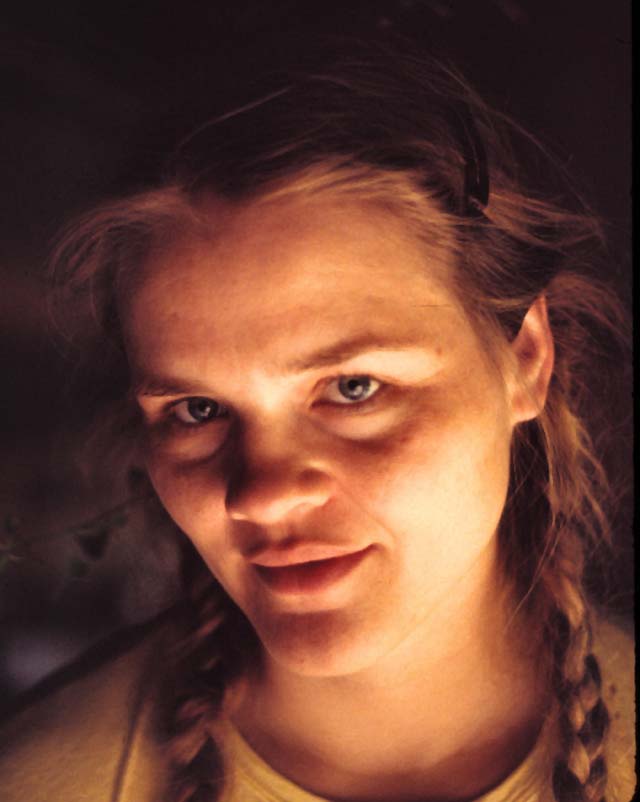For lunch today, we stopped in at our latest favorite little restaurant staffed by a husband and wife who cook Mexican food. It is the great kind with real refritos cooked in lard, carnitas, posole, and--one of my favorites: caldo de res. One of the reflections that occured to us as we were sharing little bites of each other's lunch was that potatoes are the universal vegetable.
Think about this delightful tuber and the many ways you can prepare it. It can be fried, baked, boiled, grilled, stewed. It can be served mashed, creamed, diced, sliced, peeled or whole with the skin on. In fact, the skins themselves are a wonderful dish. Potatoes go well in nearly everything! You can pair them with cream or cheese, or sour cream. You can pour chili or gravy over them, or simply garnish them with butter and salt and pepper. They are divine in curry or korma or chicken soup.
You can slice potatoes and fry them with onions in a pan. You can slice them into sticks and deep fat fry them. You can grate them into shreds and make them into latkes and fry them into little cakes. Or, you can boil them and cool them and stir them up with mayonaise and mustard into potato salad. A potato is simply fabulous when cooked with the fantastic flavors of Indian or Thai curries. Potatoes are the very best thing in that caldo de res I had for lunch--a beef broth with chunks of long simmered meat, carrots, potatoes, and chayote (a Mexican squash) that you garnish with raw onions and cilantro and Spanish rice.
Think of the societies for which the potato was a lifeline: Ireland, England, Russia and most of eastern Europe. But, I was surprised to learn that potatoes only became the basis of nutrition in these areas following their introduction in the middle 1500's by the Spanish explorers who returned with this unknown food from the "New World." Potatoes started in Peru. They were cultivated there for centuries before anyone in Ireland even heard of potatoes. In fact, when potatoes came to Europe, their introduction into the cusine accounted for a big increase in population and the growth of cities in the following two centuries. People could grow a food that gave them plenty of nourishment (you'd be amazed at the nutrients in a potato) and could be easily grown and stored.
I remember my parents planting a section of a field one year with potatoes. You don't need seeds: just cut up a potato into sections, making sure that there is at least one "eye" in each section. Then, put that chunk into the ground, cover it with dirt and water it, and a plant will grow. We planted rows and rows of potatoes and then my dad kept them irrigated on the same schedule with the hay growing near the potato field. I can still recall walking along in the cold dirt furrows in the late fall as we picked up and put into sacks or pails so many, many potatoes. My dad had plowed a little furrow with a hand plow to turn up the plants so we could get to the tubers at the roots. I don't remember them planting that many potatoes ever again. Usually my mom just had a section of her garden devoted to them, and we enjoyed small potatoes creamed with news peas and onions as the summer advanced.
Potatoes are one of those food items I always need to have around. While I serve much more rice than my mom ever did, I manage to need potatoes even when I'm eating rice. Curry is one of our favorites. But curry practically requires potatoes, and then yes, I serve it over rice. And, even though I don't make them that often, whenever I serve mashed potatoes and gravy, CoolGuy lavishes me with compliments. And, seriously, what else goes into soup if you don't have potatoes and carrots? Or stew? Or how about my favorite dinner roll recipe that uses mashed potatoes? Can you just feel the crunchiness of hashed browns, browned in butter? About the only way I don't serve potatoes is raw---but I'll always nibble on a piece of it when I'm slicing or dicing.
I guess I should stop now, but it would be easy to go on and on about the wonderful yumminess of those starchy little bundles of goodness. Just think about it--potatoes are the vegetable equivalent of a pig: the magical animal.
Saturday, February 09, 2013
Subscribe to:
Post Comments (Atom)



No comments:
Post a Comment